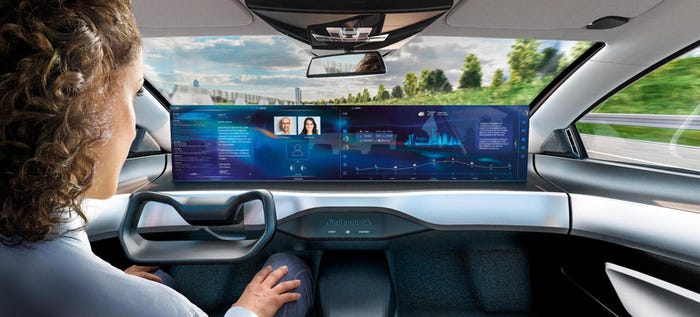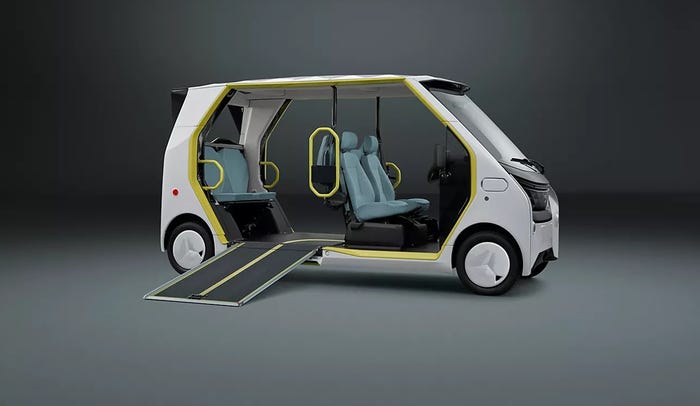Will People Buy Enough EVs Fast Enough?
This is not a time for automakers to wait and see how things develop. It will be very difficult for those who arrive late to catch up. There is a finite universe of EV buyers right now, and whoever gets them first will leave everyone else struggling to find customers.

Battery-electric cars can be really fast. Anyone who’s experienced Tesla’s Ludicrous or Plaid acceleration modes know it’s the closest thing to sitting in a fighter jet and getting flung off the deck of an aircraft carrier. But for automakers, the focus has to shift away from 0-60 mph (97 km/h) times and over to sales velocity: Will customers buy BEVs fast enough for them to recoup their massive investments in electrics?
On a percentage basis, BEV sales are growing swiftly. They represent the fastest-growing segment in the industry. But for automakers to make money on these vehicles, they need several years of production from assembly plants that are running at more than 90% of capacity. With the exception of Tesla, and probably Chinese automaker BYD, most OEMs won’t hit that point for years.
Only 12 months ago anything to do with BEVs was red hot. Investors were pouring money into their electric portfolios as if the good times would never end. Until all of a sudden, Tesla’s stock took a nosedive and it dragged all the other BEV startups down with it. It’s remarkable how fast the BEV investment euphoria fizzled out.
Now it’s no longer good enough to dazzle Wall Street analysts with sleek-looking BEV concepts or to announce you’ve locked up the supply chains needed to build them. Today, the investment community wants to know when OEMs will start making good margins on their battery-powered products that are coming down the assembly lines in mass production.
So, the race is on. A race to scale and profitability. And it won’t be easy. For one thing, there are so many EVs that will hit the market in the next three years that every segment will be sliced very thin. For another, a majority of car buyers feel they’re not ready to buy an electric car yet. Worse, in the U.S., largely because of their political beliefs, many of those people, maybe 40% of the market, want nothing to do with anything electric. They think climate change is a hoax, they think BEVs are stupid and they feel the government is trying to force them down their throats. Good luck trying to persuade them to buy an electric vehicle!
First-mover advantage is going to count for a lot. Going by the sales numbers, the Volkswagen Group, Hyundai Group and Ford look like they’re the “firstest with the mostest” among the full-line legacy automakers. In Europe, certain models such as the Fiat 500e and Peugeot E 208 have also done well, though it’s unlikely that A-segment and B-segment EVs made by legacy automakers with union labor will provide a good financial return.
This is not a time for automakers to wait and see how things develop. It’s going to be very difficult for those who arrive late to catch up. There is a finite universe of BEV buyers right now, and whoever gets them first will leave everyone else struggling to find customers. That is going to cause a lot of financial pain for the laggards.
Over time, as battery prices come down, as the charging infrastructure gets built up, and as BEVs become more commonplace, the market will grow. More and more car buyers will warm up to the idea of going electric.

McElroy_10.jpg
But between now and then it’s going to be very difficult. As I write this, Tesla just kicked off a price war that is going to make a financially fraught situation even worse.Some well-known automakers may not get through it all. Some startups could emerge as the industry’s new leaders. The global sales rankings will undoubtedly change. And it will all come down to which car companies can get customers to buy their EVs fast enough.
John McElroy (pictured, left) is the President of Blue Sky Productions, which produces “Autoline Daily” and “Autoline After Hours” on www.Autoline.tv and the Autoline Network on YouTube. The podcast “The Industry” is available on most podcast platforms.
About the Author
You May Also Like



.jpg?width=700&auto=webp&quality=80&disable=upscale)

